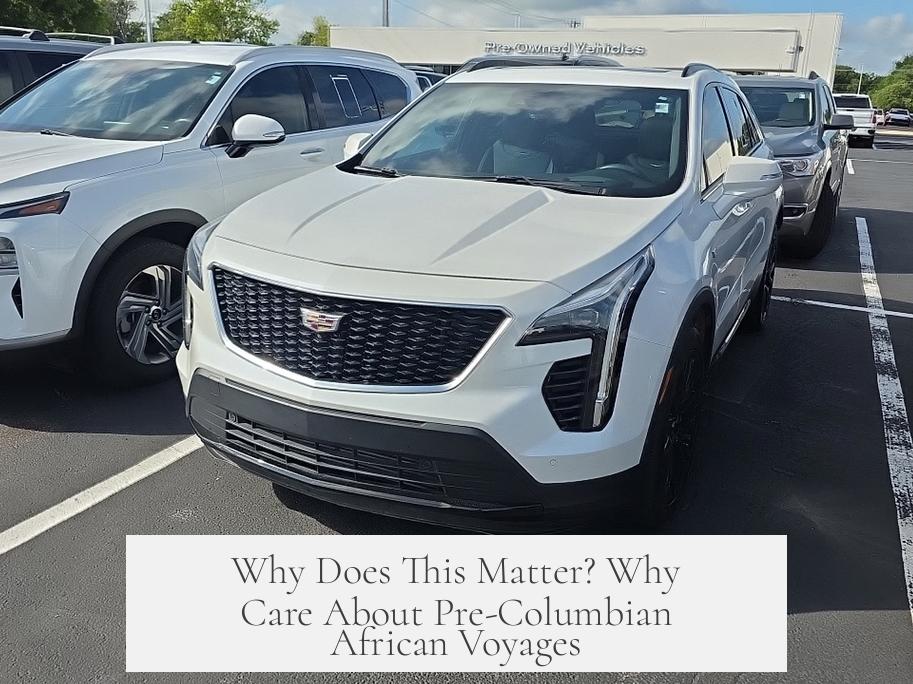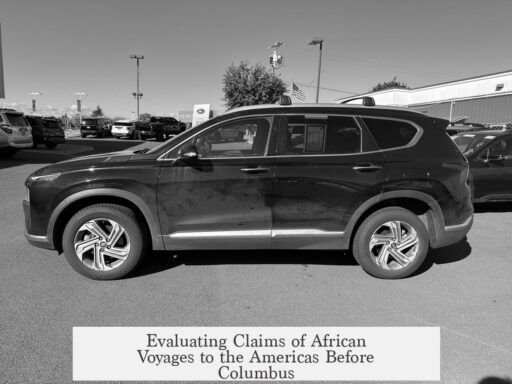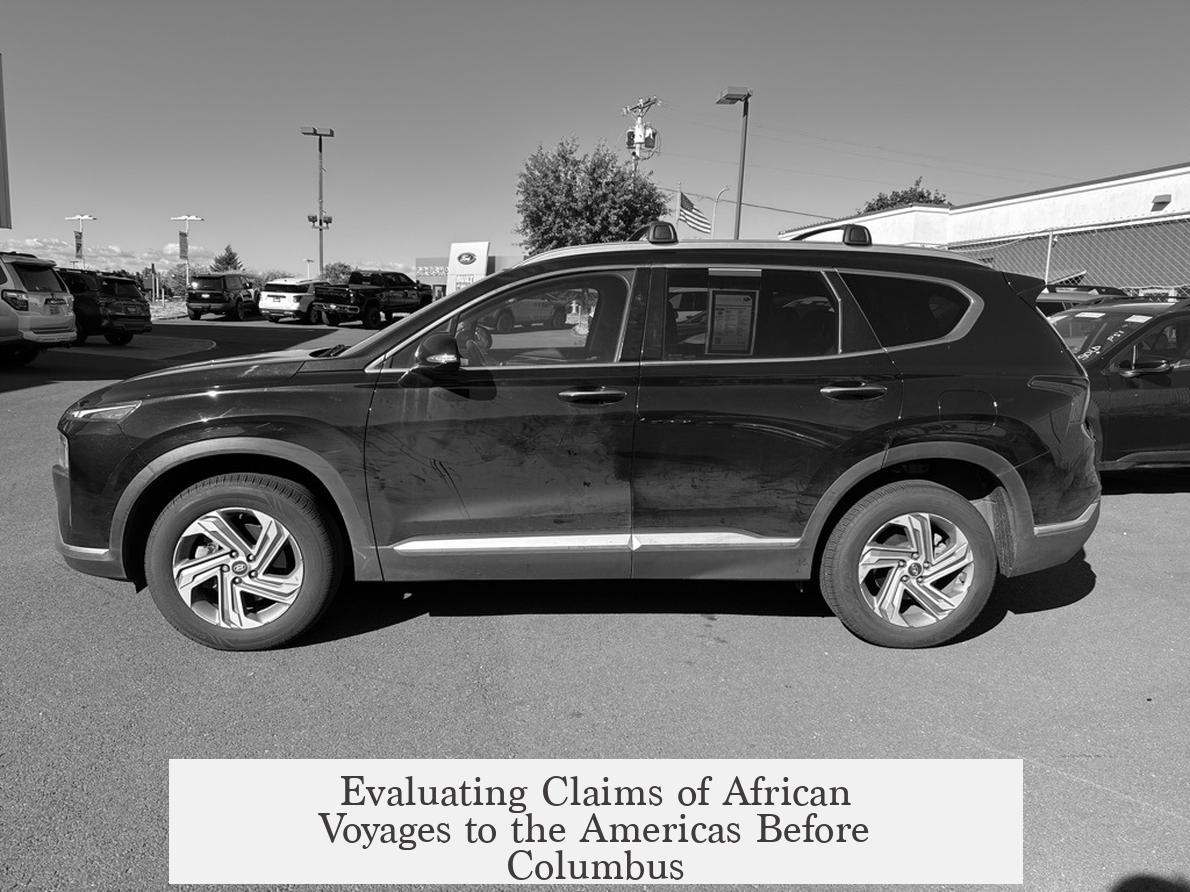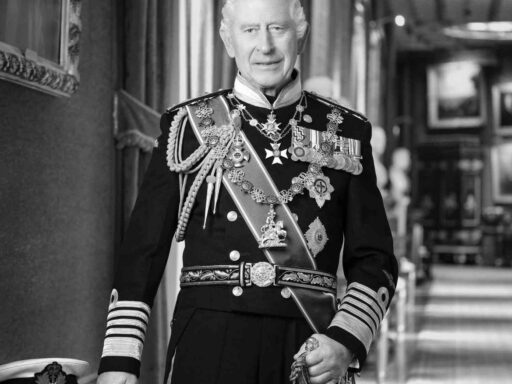“They Came Before Columbus” is not considered factually correct about Africans reaching the Americas before Europeans. The theory focuses on a 14th-century Malian expedition led by Abu Bakr II, who allegedly abdicated the throne to explore the Atlantic Ocean. However, historical and archaeological evidence challenges this claim.
The boats described in the Malian narrative were coastal canoes rather than vessels capable of oceanic travel. Coastal canoes lack the structure and durability needed to cross the Atlantic safely. This fact casts serious doubt on any transatlantic voyage by Malians during that era.
Furthermore, the story may have served political purposes. It could have been a legend or a “cover story” designed to legitimize Mansa Musa’s reign by enhancing the prestige of his predecessor. Hence, it might not represent historical fact but rather political symbolism.
According to historical accounts, Mansa Musa mentioned his predecessor’s attempt to cross the Atlantic, resulting in disappearance with thousands of ships. Yet, the feasibility of this expedition remains unclear—especially considering Mali’s shipbuilding technology at the time.
- Abu Bakr II’s abdication aimed to enable exploration, but contemporary knowledge about the Atlantic was limited.
- Historians question whether Malians had expectations to discover a “new world” or merely sought the ocean’s edge.
- There exists no strong archaeological or documentary evidence proving African arrival in America before Columbus.
Rebuttals from historians highlight these points, emphasizing the lack of credible support for transatlantic voyages by the Malians. Detailed analyses by experts like u/CommodoreCoCo on forums such as AskHistorians clarify that the theory remains speculative and unsupported by material proof.
While the narrative is intriguing, the consensus is skeptical. The notion of Malian voyagers reaching the Americas before Europeans remains unproven and should be treated cautiously.
| Aspect | Evaluation |
|---|---|
| Type of vessels | Coastal canoes, unsuitable for ocean crossing |
| Political context | Story possibly legitimizes Malian rulers |
| Historical sources | Limited to oral recounts, no firm evidence |
| Archaeological data | None supporting transatlantic Malian voyages |
- They Came Before Columbus bases its claim on weak, circumstantial evidence.
- Malian ship technology does not align with oceanic voyages required.
- The story likely serves political or cultural purposes, not factual history.
- No verified archaeological or documentary proof supports pre-Columbian African arrival in the Americas.
Is “They Came Before Columbus” Correct About Africans Reaching the Americas before Europeans?

The short answer: They Came Before Columbus, the popular narrative that Africans, specifically Malians, voyaged to the Americas before Europeans, is not supported strongly by historical evidence. Skeptics and historians alike challenge the claim based on the types of boats used, political motives behind the story, and the questionable plausibility of such a journey in the 14th century.
But let’s dig deeper to understand why this story has legs—and why it probably isn’t true. Ready for a historical voyage? Let’s sail.
The Malian Expedition Legend: What’s the Tale?
The legend centers around Mansa Musa’s predecessor, Abu Bakr II, who allegedly abdicated his throne to explore the Atlantic Ocean in a fleet of thousands of ships. Mansa Musa reportedly recounted this story sometime in the early 1300s, suggesting the Mali Empire had a transatlantic expedition. Sounds impressive, right?
However, the key question historians ask is, what sort of ships could these Malians have had? Could these boats really survive the Atlantic? According to experts, the vessels of the Mali Empire were primarily coastal canoes—not ocean-going ships. Coastal canoes are suitable for navigating rivers and nearby coasts but are wildly ill-equipped for crossing the perilous and vast Atlantic Ocean.
This technical limitation casts significant doubt on how far Abu Bakr II’s fleet could have gone.
Politics and Storytelling: Could This Be a Cover Story?
The political background of Mali at the time offers another angle. Scholars suggest that the story might function as a “cover story” or myth to legitimize Mansa Musa’s claim to the throne. Imagine telling a tale to outsiders to show why your family reigns supreme—that’s a powerful political tool.
In this light, the transatlantic expedition may serve more as royal propaganda than as factual history. Historical myths like these aren’t rare; many cultures have them to strengthen rulers’ legitimacy.
What About the Motivations? Abu Bakr II and the Atlantic Edge

Abu Bakr II’s abdication reportedly stemmed from his belief that he could find the “edge” of the Atlantic Ocean. But where did this knowledge come from? Did Malians in the 14th century really dream of a new continent?
While African navigators were skilled in coastal exploration, there’s no solid evidence that they had knowledge of or sought a “new world” across the Atlantic. The idea may have been fueled by curiosity or legend rather than exploratory intent rooted in empirical knowledge.
What Do Historians Say? The Academic Debate
A community of historians, such as those on AskHistorians, has thoroughly examined this claim.
- u/CommodoreCoCo provides a detailed rebuttal, highlighting the implausibility of the journey considering the Malian vessels.
- Historians u/BadukNak and u/MansaMontezuma contributed nuanced discussions comparing the technical, historical, and political perspectives.
- Some comments were even deleted or removed, suggesting that the topic can get controversial and prone to unsupported claims.
The consensus? While the story is fascinating and culturally significant, concrete proof is lacking.
The Boat Problem: Canola or Canoe?
Anything that sails the Atlantic better be rugged and fully equipped to handle storms, rogue waves, and months without landfall.
Unfortunately, the Mali Empire’s ships were basically large canoes optimized for river and coastal travel. They weren’t designed with reinforced hulls, sails, or navigation tools needed for ocean voyages.
It’s like trying to cross the ocean in a bathtub with paddles. The story doesn’t hold up to naval engineering standards.
Why Does This Matter? Why Care About Pre-Columbian African Voyages?

Belief in the Mali voyage can be empowering as it celebrates African ingenuity and challenges Euro-centric history. But, as with all history, facts must lead the way.
Accepting legends without evidence can blur real achievements and distort history. Still, re-examining these stories prompts valuable questions about cultural identity and historical narratives.
So, What Now? Practical Recommendations
- **Be critical.** Appreciate cultural stories but distinguish myth from verifiable history.
- Explore documented transatlantic contacts like Norse Vikings in Newfoundland, which offer solid archaeological backing.
- Encourage diverse historical research to uncover underrepresented perspectives without exaggerating unproven claims.
History is a puzzle. Some pieces are confirmed, others remain speculative. The idea that Malians crossed the Atlantic before Columbus remains on the speculative side.
To Sum Up
The claim that Africans (Malians) reached the Americas before Europeans is intriguing but not correct based on current evidence. The story likely blends genuine historical elements with later political storytelling. Technical realities of the canoes and lack of concrete proof keep the theory in the realm of legend rather than fact.
Does the idea inspire dreams of undiscovered history and cross-cultural exchange? Absolutely. Should it be taught as fact today? Probably not.
History invites curiosity but demands evidence. And that’s the best voyage we can take.




